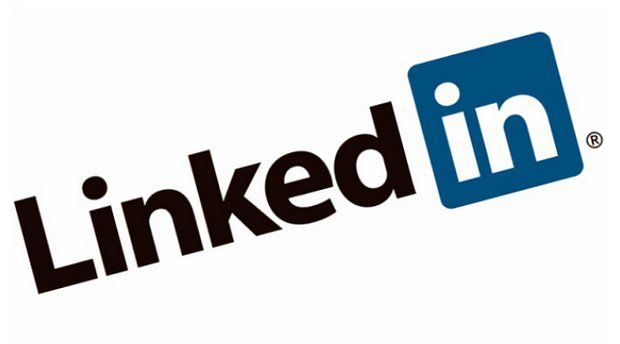Top 4 Networking Tips for College Students
Post Views 12What Is Networking?
Networking is the process of talking with people about your career goals and asking them for information about their jobs, companies or for names of other people you can meet with. It does not mean asking for a job, although an opening may develop from meeting with someone.
Although networking doesn’t come naturally to everyone, it’s a skill you’ll use for the rest of your career, says Wayne Wallace, director of the University of Florida‘s career center in Gainesville. “It takes a little bit of work, and that’s what differentiates the people who are willing to do it,” he says.
Juliana Little, a senior biology major at Columbia University in New York, discussed her career goals with editors at a major magazine last summer while doing an internship there. She told them she wanted to be a science writer, and they gave her names of people in the field to contact.
She thinks of her network as a web – she starts with five people, who might know five other people she can talk with, and so on.
While you may not get a job offer through this process, networking can definitely open doors for you. “Employers still like to hire people that are known commodities,” says Deborah Markel, a career center director.
Making Connections
Start by identifying people you know and can talk with in your chosen career field, says Lance Givens, a director of a college career-development center. Typically, these are relatives, friends or people you know through friends. You will feel less awkward around them, and if you’re nervous, they won’t mind. Starting with them will help you be more polished for later meetings.
“Students have a sense of dread about networking,” says Markel. But if you start by talking with people you already know, it’ll come more easily, she adds.
It’s nice if they work in the field you have targeted, but that isn’t necessary. They may hold unrelated jobs but work at companies which have jobs you might want. Or they may be connected to people who work in your field or in companies where you might like to work. What you’re really looking for is an introduction to the right person, through a friend.
Little has been babysitting to earn money while in college. She told her employer she was interested in a journalism job after graduating. Not long after, the mother received an e-mail from her children’s elementary school’s listserv. Another parent, who works for a magazine, needed an intern. The mother forwarded it to Little because she knew Little had an interest in journalism.
Little responded to the e-mail, citing her connections to parents at the elementary school, and is now an intern in the advertising department at the magazine. “It was sort of a serendipitous-fluke connection,” she says. Although she doesn’t want to go into advertising, she views the part-time job as a great way to make contacts and hopes to network with people at the magazine throughout her internship.
Contact Alumni
Givens suggests heading to the career center at your school to gather names of contacts from the alumni database. Most universities have programs connecting students with alumni who are willing to help with career issues. Career counselors can provide contact information.
Markel says it’s important to get in touch with past employers – perhaps at a company where you held an internship. Let a former boss there know your timeline for job hunting and ask if you can meet and gain suggestions.
Career fairs also are good places to meet people who can help, says Nathan Somers, national director of college recruiting and development with a large corporation.
“The key thing is to be prepared when you go in,” he says. “Have in mind what you want to convey to that recruiter – speak to your accomplishments.” While you may not have time for a deep conversation at a career fair, ask a recruiting representative if you can call later on for some advice.
Set the Stage
Use e-mail to set up the groundwork for your meetings. Let contacts know you want information only about their industry and career, not a job. Say you also would appreciate any advice they might have for you about job hunting and your career prospects. Mention that the meeting will only take about 30 minutes at most and ask for a time when you might meet, Wallace suggests.
In your e-mail, also let contacts know your graduation dates, says Wallace. Otherwise, they may not know how close you are to needing a job.
Allow the contact to suggest how and where you get together. Barring that, try to determine whether a source would prefer to chat over coffee or to talk by phone. During the meeting, let your contact do the talking. Ask them how to get into the field and about what they do. “They’re the experts, and that’s why you’re talking with them,” Markel says.
To ease the tension you might feel about approaching someone you don’t know, create an introduction for yourself in advance. Craft a few sentences explaining who you are and the information you’re seeking, Markel says. It takes “putting yourself in their shoes,” she says. “What do they really want to know about you?” This way, when you approach a networking contact, you will know what you want to say and won’t be stressed about having to come up with an opening.
Be polite. Evan Jackson, a senior at Princeton University, says some students are too aggressive about networking. They run from contact to contact at campus career events entering names and phone numbers in their handheld devices and never stopping to have two-way dialogues, he says.
“You have to be tactful about it,” he says.
Always Follow Up
When sending resumes always include a cover letter. After that, follow up with a phone call. Markel says she appreciates receiving letters through the mail because it shows that a candidate has spent time on the process.
Jackson says he always sends personal notes if he had a lengthy conversation with someone, either by phone or in person. “Personal notes are very well-received,” he says. “Especially in this day of e-mail, it’s very refreshing to receive a handwritten note.”
Networking contacts helped him secure both of his internships with public-policy think tanks – The American Enterprise Institute and the Ethics and Public Policy Center. His contacts at the organizations provided him with information about available internships, tips on how to apply and then forwarded his application to the appropriate person with a recommendation.
“Often, it can be difficult to get your resume in front of the right person,” Jackson says. “Having a connection to someone that can at least forward on your resume to the right person is a great way to get your foot in the door.”
Jackson has tried to meet with people involved in his target field, public-policy consulting. He typically then sends a short e-mail to say how much he enjoyed meeting the person and mentioning something he found interesting about their talk. He expects to ask some of them for advice on the interviewing and job-hunting process later on.
“I’ve used them for preparing for the interviews rather than just getting my foot in the door,” he says.
Top 4 Networking Tips for College Students by Granted Contributor



 Benefits of Community Involvement
Benefits of Community Involvement  7 Steps to Maximize Your Network in Helping You Get a Job
7 Steps to Maximize Your Network in Helping You Get a Job  How to Find a Job Through Networking
How to Find a Job Through Networking  It is Possible to Find Jobs Outside Your Network
It is Possible to Find Jobs Outside Your Network  Creative Ways to Network
Creative Ways to Network  How to Get on the Radar of the Top Influencers of Your Industry
How to Get on the Radar of the Top Influencers of Your Industry  The Best Ways to Attract Recruiters with Your LinkedIn Profile
The Best Ways to Attract Recruiters with Your LinkedIn Profile  Six Reasons You Need to Be Networking
Six Reasons You Need to Be Networking